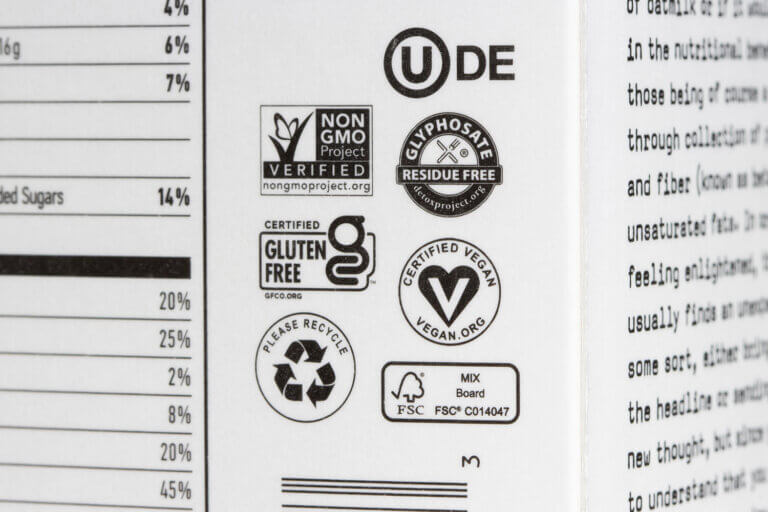While Israel’s world trade dropped 18 percent in the last three months of 2023, trade with Arab countries decreased by only four percent in the same time period.
A joint investigation by the Middle East Eye (MEE) and Arabic Post has revealed that hundreds of food products from companies across several Arab countries have been certified as kosher and continue to be sold in Israel.
Despite ongoing international condemnation and calls for boycotts due to allegations of genocide and the deaths of more than 37,000 Palestinians in the Gaza Strip, dozens of new kosher certificates have been issued for products from these countries since October of last year.
The investigation revealed a total of 3367 kosher products from several Arab and Muslim countries were imported to Israel. This includes 442 products from 80 companies based in Arab countries.
This underscores the robust trade connections between Israel and regional nations such as the United Arab Emirates, Egypt, Jordan, and Morocco.
Mahmoud Nawaja, the general coordinator for the Boycott, Divestment and Sanctions (BDS) movement, accused the Arab governments of complicity through their ongoing trade relations with Israel.
“The trade growth between these Arab countries and Israel can only be considered as their involvement and complicity in Israeli crimes against Palestinians, and the genocide in Gaza specifically,” he said.
“It does not reflect the position of the Arab people, who have been calling for a complete boycott. These states are sustaining the Israeli colonial regime under the direction of the U.S.”
Trade relations with Israel
According to MEE, these kosher-certified products from Arab nations are prominently displayed in Israeli supermarkets and are available online.
Some companies contacted by the news agency have denied exporting goods directly to Israel, suggesting their products might have reached Israeli markets via third-party countries.
Others claimed their products were meant for Palestinian markets, despite kosher certification not required.
However, Israel’s trade data reflects this ongoing exchange.
Imports from Egypt to Israel in May 2024 were valued at $25m, double the amount from the same month in 2023.
However, total imports for the first five months of 2024 slightly decreased to $85.6m from $90.7m the previous year.
Jordan and Morocco’s imports also decreased, from $129.1m from $184m and $7.4m from $8.6m respectively.
Meanwhile, the UAE’s imports for the same period increased to about $1.2bn, up from $988m. while
Hundreds of kosher-certified products
The investigation found that there are 35 Egyptian companies who import 206 food imports to Israel, including many that were certified since October last year alone.
This includes Faragalla Group, one of Egypt’s largest food production firms, offering products like juice, frozen okra, and molokhia.
At least 25 Moroccan companies imported 113 products, while five Jordanian companies imported 19 products.
More than 2,770 food products from 290 Turkish companies are also registered as kosher.
These products range from frozen or canned vegetables and fruits to oils, tahini, sugar, apricots, tuna, noodles, peanuts, and juice.
The database also includes a small number of kosher-certified products from Tunisia and Saudi Arabia, countries without formal diplomatic or trade relations with Israel.
Four Emirati companies imported 58 products, in addition to the 41 products from seven foreign companies based in the UAE.
Palestinian consumers, market regulations
Some companies told MEE and Arabic Post their products were intended for Palestinian markets in the occupied West Bank and inside Israel, where kosher certification is not mandatory.
Srour, a Jordanian company, whose halva and tahini products received kosher certification in February, denied exporting to Israeli markets, claiming their products were sold in “historic Palestine”.
They said: “We are proud that our products are on their tables as an alternative to the products of the occupying enemy,” the company said, but acknowledged that their products were certified kosher due to being “subject to the laws of the occupier”.
Palestinian businessman Omar Jasser noted that all imported products require a kosher certificate to be legally sold in Israeli markets, adding Palestinian citizens of Israel must adhere to import and export procedures, marketing, tax, and customs regulations, the MEE report said.
“If imported products are for sale only in the Arab market inside Israel or Palestinian markets, then it is not obligatory to obtain a kosher certificate, provided that they are not marketed and sold in Israeli markets and shopping networks,” Jasser said.
Regional trade not as affected
The Abraham Accords Peace Institute, a pro-Israeli organisation based in the United States, pointed out the strength of trade between Israel and Arab states since the war on Gaza began.
Their 2023 annual report indicated Israel’s almost ninth-month-old war had less impact on Israel’s regional trade compared to its global trade.
While Israel’s world trade dropped 18 percent in the last three months of 2023, trade with Arab countries decreased by only four percent, from $937m to $903m.
Trade between Israel and the UAE comprised about three-quarters of Israel’s trade with Arab countries.
Despite a 14 percent decline in Israeli-Emirati trade in the fourth quarter of 2023, there was a 17 percent year-on-year growth.
A few days after October 7, Emirati trade minister Thani al Zeyoudi said Israel’s assault on the Gaza Strip will not have an impact conflict on trade.
“We don’t mix the economy and trade with politics,” he said at the time.
In Jordan, trade decreased by 16 percent in 2023, with a 42 percent drop in the fourth quarter compared to the same period in 2022.
However, Israel’s trade with Egypt grew by 56 percent in 2023 and increased 168 percent year-on-year in the fourth quarter. Trade with Morocco more than doubled in 2023 compared to 2022.
“These numbers demonstrate the resilience of trade ties between the countries despite the Israel-Hamas war,” the institute said.







